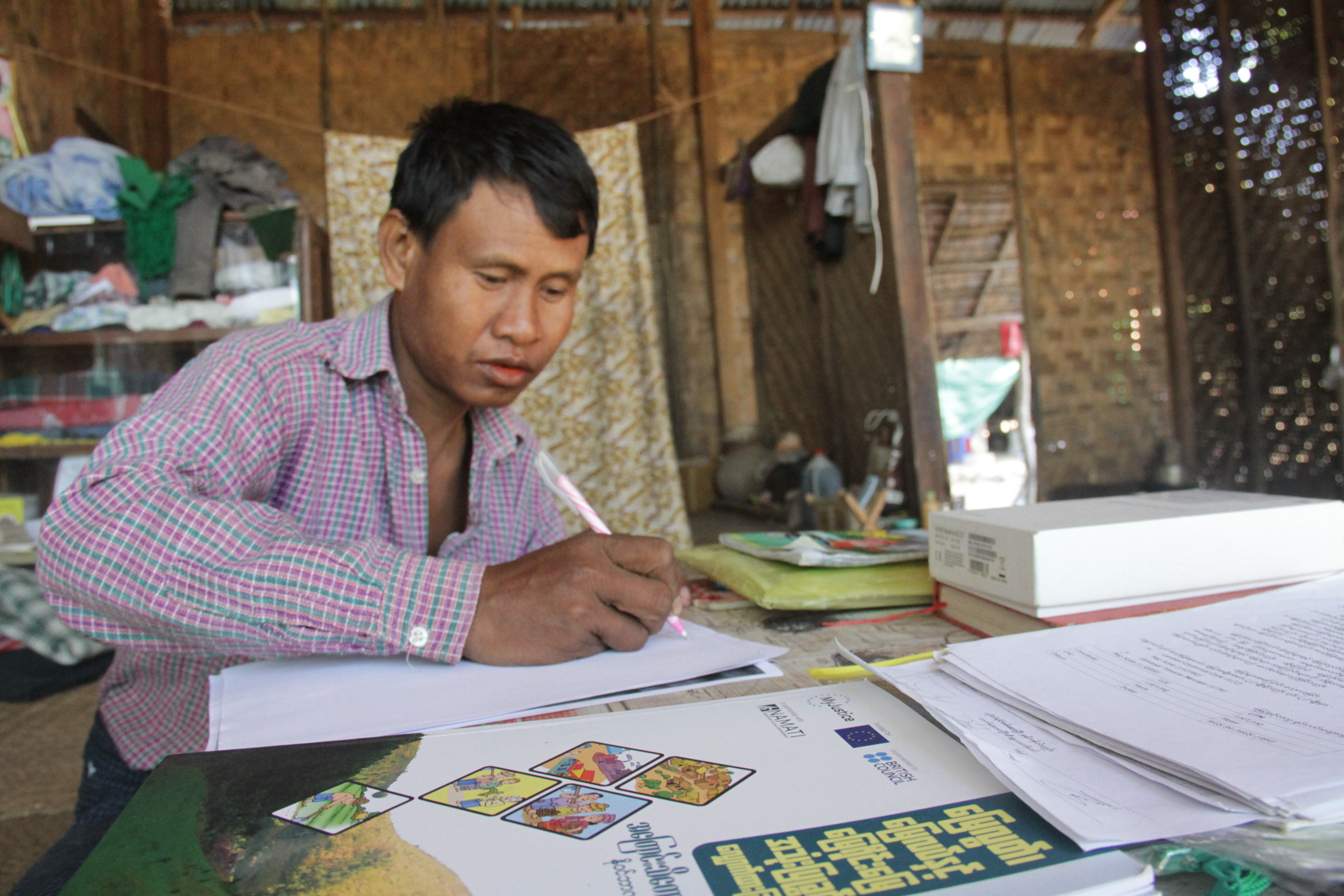Stories
From Witness to Problem Solver – U Win Naing Htay’s Journey
In 1980, during the midst of military rule in Myanmar, the Ministry of Electricity and Energy seized 920 acres of farmland in Bago Region to build a fertilizer plant. The land belonged to over 100 families. The Ministry gave them no warning and no compensation. And when it did not use 297 of the acres it seized, it kept them anyway.
Forced from their own land, the farmers worked as day laborers in the fields and paddies in and around Kyaw Swar village. The work was intermittent, the wages low, and the number of jobs limited. Many of the affected families eventually left to look for work, some resorting to difficult and low-paying jobs such as fishing, which did little more than help them stave off hunger.
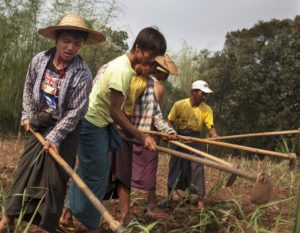
Farmers till the land in Milethouk village, Shan State.
U Win Naing Htay: A Paralegal in the making
U Win Naing Htay was a young boy during this time of turmoil in his village. When he noticed that more and more of his friends were moving away, he asked his father why. The government took their land, his father said, their parents had no choice but to move in search of work.
U Win Naing Htay was confused and upset by this answer; as a child, he didn’t understand why the government would do this to people.
As U Win Naing Htay got older, his confusion lessened but his sense of injustice grew stronger. At 13, he had to drop out of school to work on his family’s farm. Times were tough and there was the constant fear that any day, without warning and without compensation, the government could take your land away, and with it, your family’s livelihood.
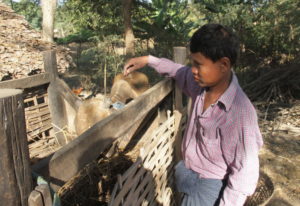
U Win Naing Htay tends to his cattle. © CPRCG/Namati
“Except for my youngest brother who did go to high school, none of my eight siblings continued schooling. We had to drop out of school to work for our family’s survival,” says U Win Naing Htay. “Our lives were changed dramatically. … Forced relocation of farmers, human rights violations, and land grabs influenced my mind. That made me have a desire to fight for justice and to help farmers.”
Twenty years later, U Win Naing Htay found a way to put this desire into action.
inspired by the power of law
In 2013, U Win Naing Htay attended a land rights education meeting in his village held by Civil and Political Rights Campaign Group (CPRCG), a Namati partner. Myanmar had started a slow shift to quasi-civilian rule three years earlier and as part of the process, was amending its laws. At the meeting, a community paralegal named U Aye Ngwe explained that under the 2012 Farmland Law, farmers could now secure their land by registering it.
U Win Naing Htay applied what he learned at the meeting and submitted the registration for his family’s land, but there was an issue. Someone from another town was claiming the land as their own. He turned to U Aye Ngwe, the paralegal, for help. In working with U Aye Ngwe on the case, U Win Naing Htay learned how the law could be used to solve problems and protect one’s rights. He was inspired.
He began to help several paralegals and farmers with their cases. The Ministry of Electricity and Energy land grab case was one of them.
The Ministry Land Grab Case
In early 2013, shortly after the Farmland Law was introduced, farmers whose land was seized by the Ministry worked with local civil society organizations to send complaint letters to the Farmland Administration Bodies at different levels of government. No one responded. In late 2013, the farmers reached out to U Aye Ngwe for guidance.
U Win Naing Htay worked alongside U Aye Ngwe and a representative group of farmers on the case. Together, they collected the necessary evidence and documents, and submitted detailed complaint letters to the Bago Regional government, Township Administration department, and Ministry of Electricity and Energy claiming their right to the 297 acres that had not been used for the fertilizer factory.
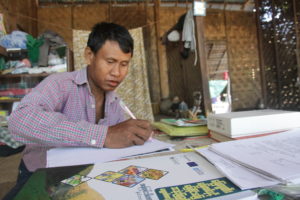
U Win Naing Htay works on a case in Bago Region, Myanmar. © CPRCG
This time, the authorities replied. Unfortunately, the response was that the land in question could not be returned as it now officially belonged to the Ministry of Electricity, which is separate from the Ministry of Energy.
Making such claims, regardless of their basis in law, is often the first defense of land grabbers who try to dissuade the original farmers. But U Win Naing Htay, U Aye Ngwe, and the farmers were not deterred.
In 2015, U Aye Ngwe passed away. Though saddened, U Win Naing Htay was determined to carry on U Aye Ngwe’s work and help the farmers get justice. He officially joined CPRCG as a community paralegal and took over U Aye Ngwe’s cases.
Over the next two years, U Win Naing Htay and the Kyaw Swar farmers sent more letters and conducted more follow-up visits. They organized a meeting with staff from the Land Settlement and Record Department and the Ministry of Electricity and Energy in February 2017 and, when the Farmland Reinvestigation Committee was established, sent yet another round of letters and conducted yet another round of follow-up visits.
Their persistence paid off.
The connections they made with Regional-level Members of Parliaments enabled them to secure meetings with the Regional Minister of Electricity and the Regional Chief Minister—the most senior person in the Region, appointed to govern by the President. After these meetings, the government started sending people to the village to conduct surveys, investigations, and to collect information relating to the land grab.
In February 2018, 38 years after the land was grabbed and 5 years after the case had begun, the Ministry of Electricity and Energy released all 297 acres back to the farmers.
The families that had once had fled are now returning to their land.
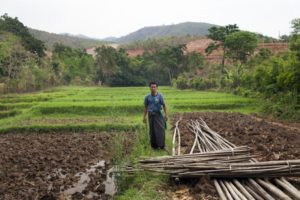
A farmer stand on his land in Kanpal village, Shan State.
story collected by aye aye aung

